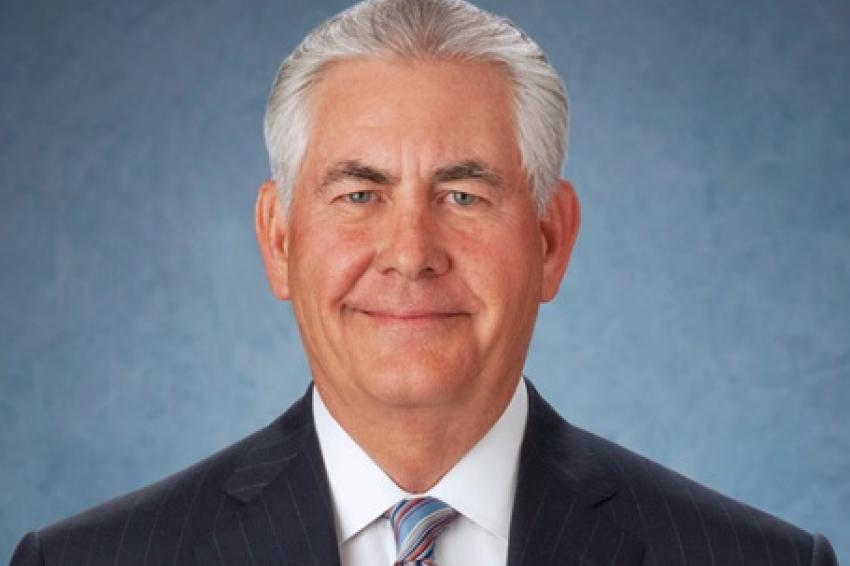$180 Million Retirement Package for Tillerson
06.01.2017 -
Shortly before Rex Tillerson becomes Secretary of State under new US President Donald Trump – if confirmed by the Senate in a hearing set to begin next week – the 64-year old now former CEO of ExxonMobiil will leave the oil and petrochemicals giant with a retirement package worth $180 million.
Tillerson has been CEO and chairman of the ExxonMobil – his first and only employer – since 2006. His replacement, Darren Woods, is 25-year Exxon veteran who until Jan. 1 had served as the oil group’s president.
The cash payment to the long-term CEO, said to reflect the value of the more than two million shares he would have received over the next 10 years, will be placed in a trust to be overseen by a third party. The secretary-designate has already promised the US State Department that, if confirmed, he will sell another 611,000 ExxonMobil shares he currently owns, worth about $55 million.
Because of the way Tillerson's compensation is being dispensed, reports said he will forfeit about $7 million, compared with what he would have been paid if he retired in March of this year as planned.
While US Federal ethics rules do not require government officials to divest investments, they must recuse themselves from matters that would affect those investments. Tillerson’s brief would be vast, given Exxon's global operations, in Russia among other countries. Here a financial stake in a major oil company would be regarded as a conflict of interest.
US presidents are also exempt from federal ethics rules, though most officeholders in the recent past have sold off their financial interests and placed them in trusts. Trump has said he will bring his – unquantified – wealth into a trust and that management responsibilities at his company will be handled by his children, along with executives. However, his plans to continue owning the business has been eyed critically.
Trump’s critics say conflicts of interest could arise and leave the president vulnerable to foreign governments that could try to influence him by rewarding or punishing his business interests in locally.





